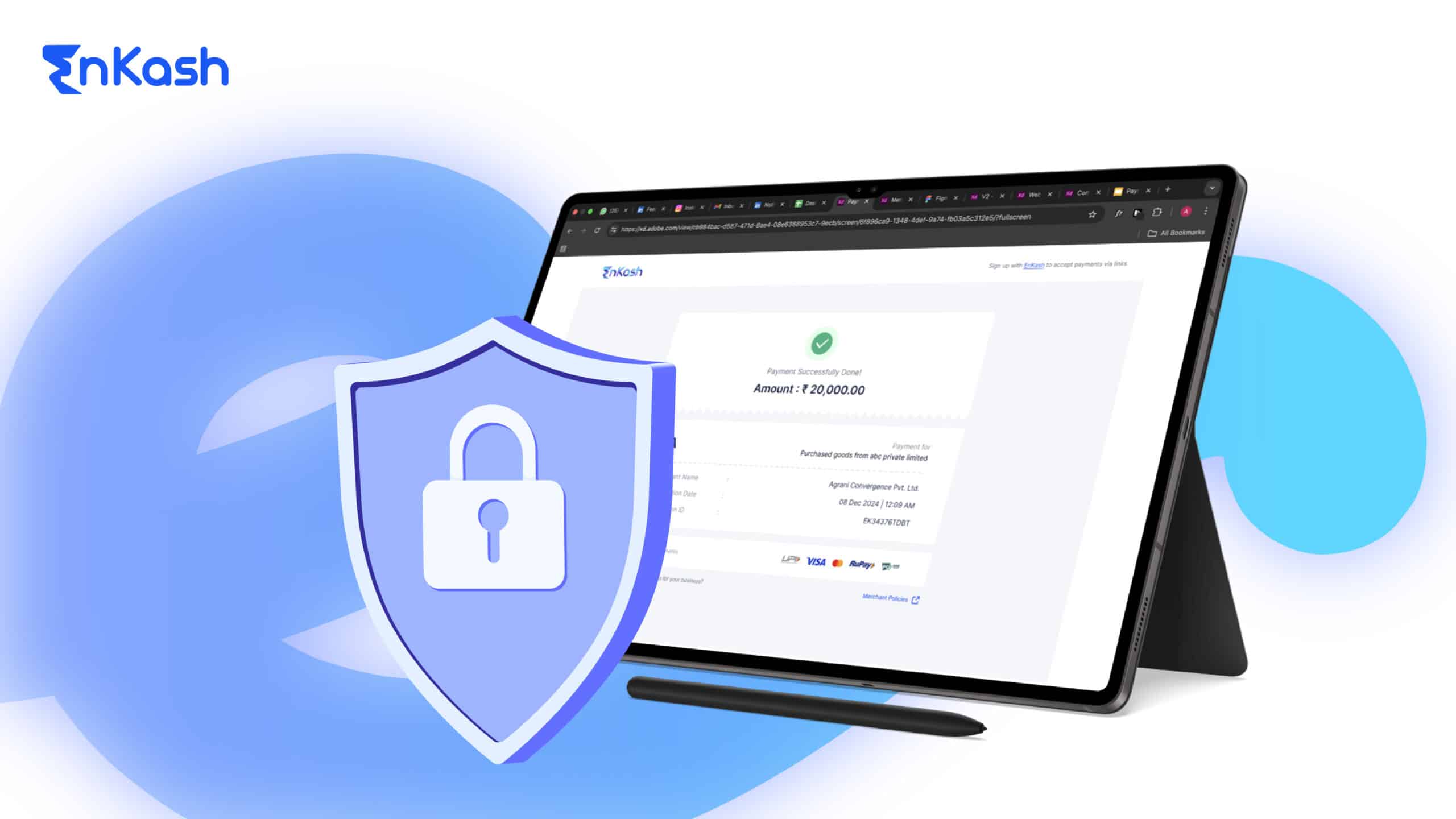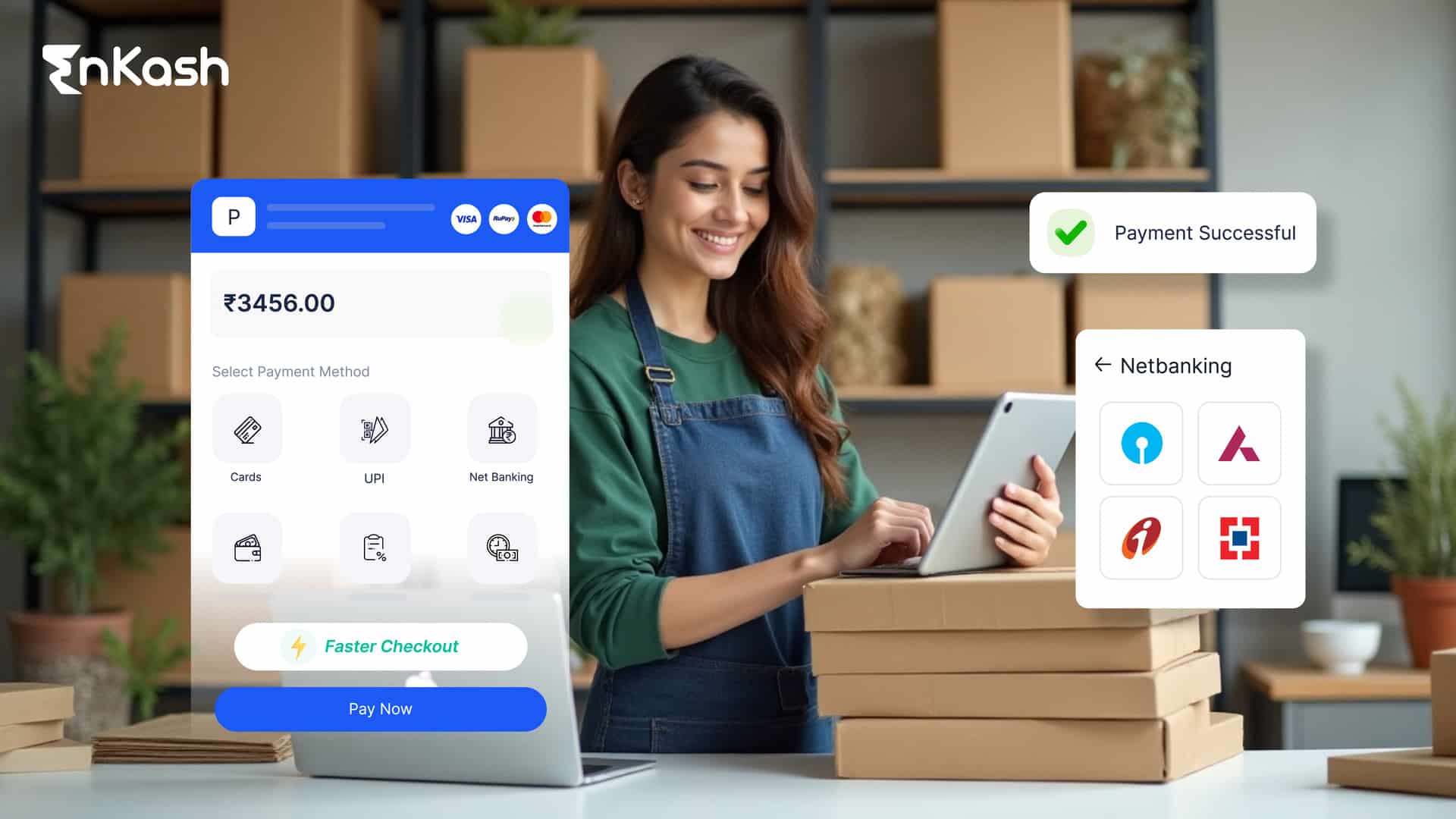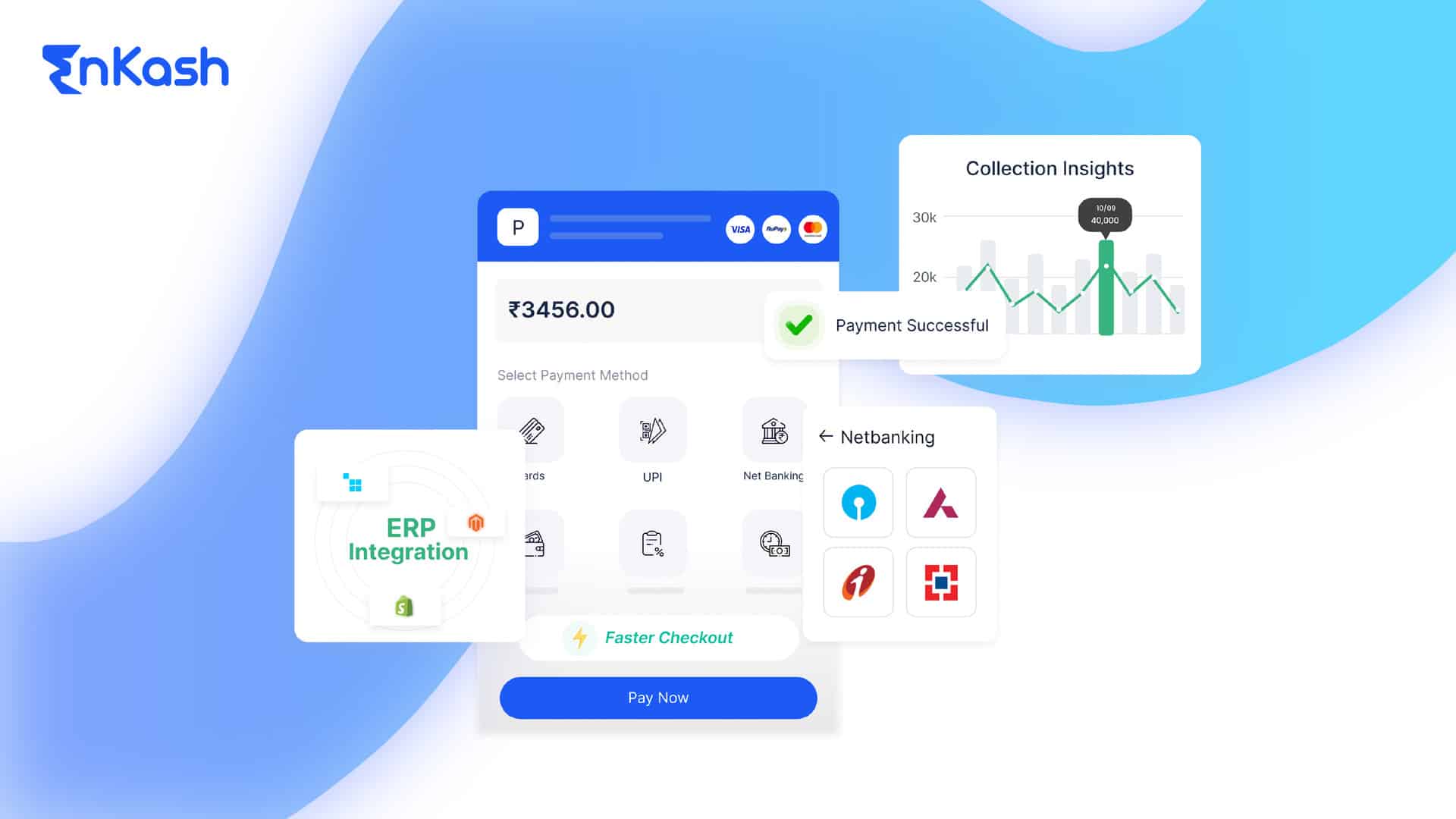India’s digital payments ecosystem has experienced rapid growth over the last decade. UPI, one of the best-known secure online payment solutions, has kept showing its dominance over the last few years and especially in 2024 and 2025. By 2024, India recorded over 208 billion digital transactions. This is indeed an impressive milestone fueled by the rise of e-commerce and mobile banking.
However, on the negative side, this growth has also led to a noticeable increase in cybersecurity risks. Incidents that common people fear the most, like data breaches, fraud, hacking, etc., have become more common. In 2024, India reported an average of ₹19.5 crore cost per data breach. This number shows a high rise from previous years.
One of the most notable incidents was the Juspay breach in 2024, which exposed sensitive payment data of millions of users. This incident showcased the devastating effects of poor payment gateway security. With all these rising threats of fraud, businesses can no longer afford to treat payment security as optional. And unless they use secure payment gateways, they can’t win their customers’ trust. This is why it must be embedded into the core of their operations.
Read More: How Secure Payment Gateways Protect Your Online Transactions
Understanding Payment Gateway Security Risks
A. Data Breaches
Data breaches are one of the most common cyber threats targeting payment gateways in India. Hackers always look for ways to defraud innocent people by stealing their personal data. That is why they often target card databases and merchant applications. Their ultimate goal is to steal sensitive customer information that includes card details, UPI credentials, etc.
In 2024, India saw a dramatic rise in data breach incidents. Surprisingly, the number of breaches reached a record high. The more people shifted towards using payment gateways the more hackers found their golden chances to steal information.
Many businesses are targeted due to their insecure IT infrastructure or the ones having outdated security protocols. Once attackers gain access to sensitive data, they can either misuse it for fraud or sell it on the black market.
Businesses that don’t care about implementing or improving secure systems expose themselves to huge financial and reputational risks. A breach can make them lose customers as well as investors. For this reason, regular audits and strong encryption practices are very important.
B. Unauthorized Transactions
Another major risk is unauthorized transactions. These are on the rise in India. With the increased use of UPI and digital payments, fraudsters are exploiting security loopholes. Attacks like credential stuffing, fake OTP generation, and compromised merchant accounts are becoming more common.
In 2024, India recorded an alarming increase in credential-based fraud. In these cases, fraudsters gained access to customer payment data through phishing or social engineering tactics. When a payment gateway or merchant’s system is breached, attackers can initiate fraudulent transactions. Often, these transactions happen without the customer’s knowledge. This type of fraud can lead to significant financial losses for businesses. Such losses typically include chargebacks and customer refunds.
For this kind of payment fraud prevention, businesses must ensure the use of two-factor authentication (2FA) for all sensitive transactions. They must also employ robust fraud detection systems. These systems should identify suspicious activity in real-time.
C. Phishing and Social Engineering
Phishing and social engineering are increasingly sophisticated threats that rely on manipulating human trust rather than exploiting technical vulnerabilities. Fraudsters use fake emails, phone calls, or even AI-driven deepfakes to impersonate trusted entities like banks or customer support teams.
In 2024, scammers in India adopted AI-powered voice cloning to manipulate customers into authorizing fraudulent payments. These techniques bypass traditional security mechanisms, such as OTPs and passwords. Customers are tricked into thinking they are speaking to a legitimate representative. Once convinced, they approve fraudulent transactions. Businesses must educate their customers on how to spot phishing scams and implement anti-fraud measures like AI-based fraud detection systems.
D. Merchant-Side Vulnerabilities
While payment gateways invest heavily in security, merchants must also ensure their systems are secure. Many breaches originate from merchant-side vulnerabilities. Common examples include formjacking, unpatched plugins, or unencrypted web pages. These vulnerabilities allow hackers to hijack transaction data before it reaches the gateway.
Merchants often overlook the importance of website security in the payment process. However, a breach on the merchant’s site can compromise the entire payment system. Businesses must regularly update their software. They must implement secure coding practices and use secure hosting environments. These measures help avoid becoming an entry point for attackers.
E. Consequences of a Breach
The consequences of a breach extend far beyond financial loss. Businesses face chargebacks, regulatory fines, and irreversible brand damage. Once a breach occurs, customers lose trust in the business. It can take years to rebuild that trust.
In India, businesses are now required to report data breaches to the RBI. This regulation has made incident management a priority at the highest levels. Not reporting breaches on time could result in severe fines and reputational harm. A breach might also lead to legal action. This is especially true if sensitive customer data is exposed.
Read More: 3 Ways to Avoid Business Expense Fraud
Regulatory Framework and Compliance Standards
India has a robust regulatory framework. This framework aims to ensure payment security. Businesses must comply with these regulations. Compliance ensures they are secure and legally protected.
PCI DSS 4.0 Compliance
PCI DSS 4.0 is the latest update that relates to the Payment Card Industry Data Security Standard. The standard was introduced in 2024. It mandates stronger encryption protocols. It also requires continuous monitoring. Additionally, stricter controls over software lifecycle management are necessary. PCI DSS-compliant gateways are essential for businesses handling cardholder data. Non-compliance can lead to fines. It can also cause a loss of card payment processing abilities.
For Indian businesses, secure payment gateways must be PCI DSS Level 1 certified. Level 1 certification is the highest standard. It requires an annual audit of security controls.
RBI’s Payment Aggregator Guidelines
India’s RBI Payment Aggregator Guidelines state clear rules. Only licensed payment aggregators (PAs) can onboard merchants. These guidelines ensure PAs meet strict security norms. They also enforce governance standards.
PAs must adhere to capital adequacy norms. They must conduct merchant KYC. Additionally, they must undergo regular security audits. Non-compliant gateways are not authorized to onboard merchants. Businesses must verify RBI compliance before securing payment gateway integration.
Card Tokenization
Tokenization has been mandatory since October 2022. It ensures merchants do not store actual card data. Instead, tokens replace sensitive data, such as a PAN or CVV. Tokens are useless if intercepted during breaches. This makes tokenization a powerful security measure.
Tokenization reduces fraud risks. It ensures compliance with PCI DSS. Payment gateways must use secure token vaults. These vaults store tokens securely. Secure storage makes payment details harder for hackers to access.
Data Localization
India requires payment data storage within the country. This regulation prevents unauthorized foreign access to Indian payment data. Data localization provides better legal control. It also offers forensic access during breaches. Businesses must ensure payment gateway compliance. This compliance involves using Indian-based data centers for processing payments.
Mandatory Two-Factor Authentication (2FA)
India has enforced two-factor authentication (2FA) since 2009. It applies to all digital payments. 2FA is critical for payment security. It reduces the risk of unauthorized access. Typically, 2FA involves OTP or biometric verification. This verification is in addition to transaction details.
RBI’s recent 3D Secure 2.0 mandate strengthened this process. It makes transactions safer. Businesses must ensure gateways support 2FA for compliance.
Annual Security Audits & PA-DSS
Payment software used by businesses must follow PA-DSS. This ensures software security. RBI mandates VAPT audits. These audits are Vulnerability Assessment and Penetration Testing. VAPT identifies security vulnerabilities. Businesses must fix identified vulnerabilities promptly. Regular audits ensure payment systems remain secure. Systems are frequently tested and updated. This process mitigates new threats.
Read More: Payment Gateway Security Features
How Secure Payment Gateways in India Ensure Safe Transactions
Payment gateways deploy multiple layers of security. These layers protect both merchants and customers. Below are key security features commonly used by secure payment gateways in India:
End-to-End Encryption
Payment data is protected in transit using TLS 1.2+ encryption. This makes it unreadable to attackers. The encryption ensures data cannot be decrypted even if intercepted by attackers.
Hosted Payment Pages & iFrames
Hosted pages and iFrames prevent merchants from directly handling sensitive payment information. These secure methods isolate payment data from merchant websites. This reduces the merchant’s exposure to fraud. It also reduces their PCI DSS scope. The payment gateway handles all sensitive data instead.
3-D Secure 2.0
3DS2 is an advanced authentication protocol. It evaluates transactions for risk. For low-risk transactions, it bypasses OTPs. This makes payments faster for customers. However, high-risk transactions still require authentication. This adds a layer of security without compromising the customer experience.
Fraud Detection Systems & Machine Learning
Modern, secure payment gateways use machine learning to detect fraud. They analyze patterns like transaction velocity, location mismatches, and device data. This helps flag suspicious activity. Real-time monitoring helps prevent fraudulent transactions before they occur.
Tokenization Vaults
Tokenization ensures sensitive card data is replaced with a random token. This makes intercepted data useless. Token vaults are highly secure. Only the gateway can decrypt tokens to access the original payment data.
Regular Security Audits
Even the most secure payment gateways in India have to undergo rigorous annual audits. These audits maintain compliance with PCI DSS and other security standards. They include penetration testing, bug bounty programs, and real-time threat monitoring.
Failover & Disaster Recovery Systems
Secure payment gateways in India maintain redundant systems across multiple data centers. This ensures transactions can continue processing if one data center goes down. Additionally, gateways implement DDoS protection, load balancing, and backup systems. These measures ensure reliability during attacks.
Read More: White-Label Payment Gateway
Best Practices for Indian Businesses
While payment gateways ensure secure infrastructure, businesses must also follow best practices. These practices help protect their operations.
Choose Only Authorized Gateways
- Always integrate with RBI-authorized secure payment gateways.
- Verify their PCI DSS certification.
- Avoid gateways lacking proper certifications
- Do not use gateways without regulatory compliance.
Secure Your Infrastructure
- Use SSL encryption across all pages.
- Keep your website and plugins updated regularly.
- Implement web application firewalls.
- Use intrusion detection systems for extra protection.
Never Store Sensitive Payment Data
- Never store sensitive data like PAN, CVV, or UPI PINs.
- Use tokenized solutions instead.
- Alternatively, use hosted forms. Both methods ensure data security.
Handle Failed Transactions Carefully
- Use clear retry mechanisms for failed transactions.
- Only fulfill orders after confirming payment success.
- Ensure your system uses real-time webhooks. They help with accurate transaction status updates.
Transaction Monitoring & Reconciliation
- Regularly monitor transaction patterns.
- Watch carefully for discrepancies.
- Reconcile payment reports often.
- Confirm all payments are processed correctly.
Educate Your Customers
- Inform customers about phishing.
- Educate them on fraud prevention.
- Provide clear guidelines for safe payment practices.
- Encourage reporting of suspicious activities immediately.
Stay Updated on Security Trends
- Stay informed about the latest security developments.
- Subscribe to updates from RBI.
- Follow advisories from CERT-In.
- Regularly review security protocols.
- Stay ahead of emerging threats consistently.
Read More: How to Choose the Right Payment Gateway for Your Business
Conclusion
In India’s fast-evolving digital economy, payment security is not optional. It is essential for building trust with customers. It also ensures business continuity. Businesses must adopt a multi-layered security approach. This approach includes choosing secure payment gateways. It also involves securing their own infrastructure.
Regular audits are important. Compliance with RBI guidelines is also crucial. Customer education is another critical component. The cost of negligence is high. Securing payment systems today ensures business success tomorrow. By prioritizing payment security, businesses can foster customer loyalty. They can avoid fraud; they can also stay competitive in India’s digital marketplace.
Security and Compliance at EnKash Payment Gateway
EnKash Payment Gateway is built to keep transactions safe at every step. It uses strong encryption to protect payment details and follows all the rules set by the RBI. This includes making sure data stays within India and is handled in a secure way.
Regular security checks help keep the system strong. EnKash runs audits and reviews to make sure payments are protected and stay free from fraud. It also uses two-factor authentication and watches over payments in real time, adding more safety for both businesses and customers.
Built to handle large volumes securely and efficiently, EnKash offers a trusted infrastructure that supports seamless, compliant, and secure payment experiences.













